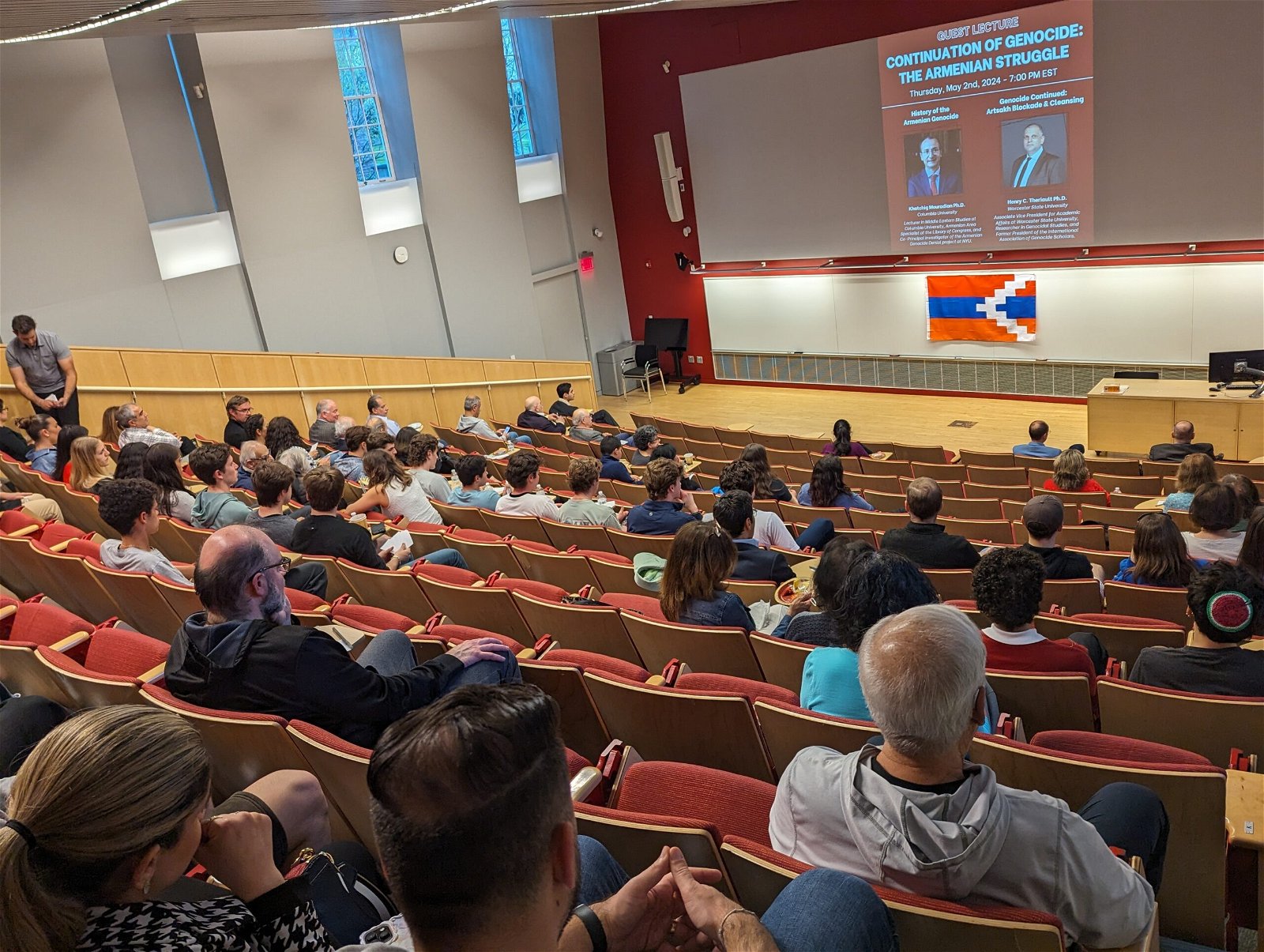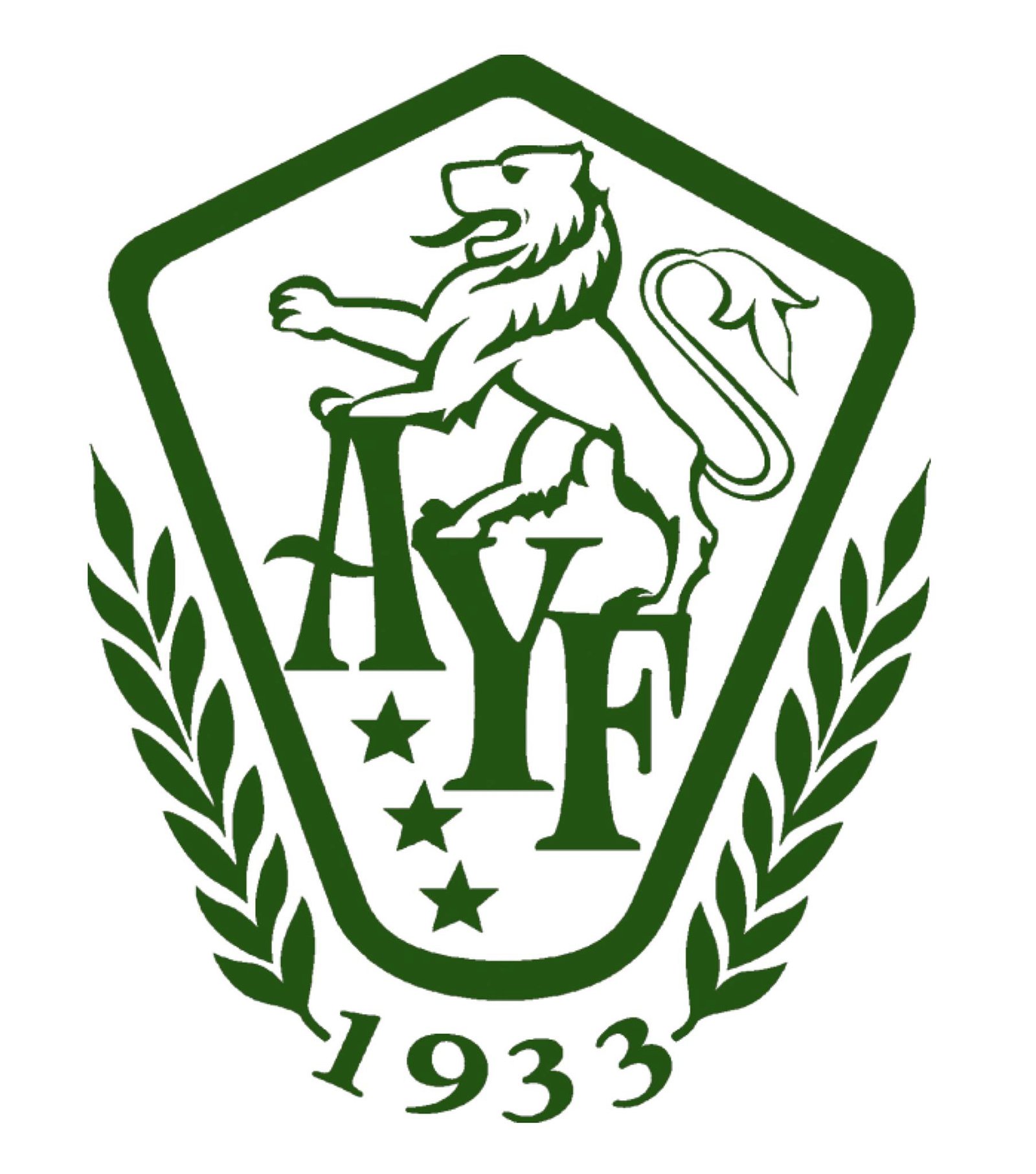PROVIDENCE, R.I.—More than 100 guests attended the “Continuation of Genocide: The Armenian Struggle” guest lecture hosted by the Providence “Varantian” Armenian Youth Federation (AYF) Chapter on Thursday, May 2, 2024 at Brown University in Providence, Rhode Island.
Upon arrival, guests were welcomed with a spread of homemade Armenian desserts, coffee and other refreshments, accompanied by Armenian folk music playing softly in the background, fostering an atmosphere infused with cultural charm.
The event, which was open to the public, brought together Armenian community members and students from Brown University and nearby Providence College for a lecture that shed light on the historical context of the Armenian Genocide and its impact on the ongoing Armenian struggle for recognition and justice.
In light of recent developments in Armenia, particularly regarding planned land concessions, the Providence “Varantian” AYF Chapter, in collaboration with the Brown Armenian Society, was committed to raising awareness about these underlying issues. The two-part lecture aimed to educate the audience on the history of the Armenian Genocide and spread awareness on the current state of Artsakh, emphasizing its historical context and how recent events there should be recognized as acts of genocide.

Providence AYF chair Hagop Taraksian welcomed the crowd and invited chapter executive member Ani Comella to formally introduce the evening’s lecturers.
Dr. Khatchig Mouradian provided the historical context and events surrounding the Armenian Genocide during the first lecture. Mouradian captivated the audience with an innovative presentation, weaving together historical facts and a timeline of the Armenian Genocide, while incorporating photos to convey its profound impact.
An especially impactful photo that Mouradian kept on the screen for a while was one taken by an AP photographer in October 2020 of an Artsakh family’s home on the back of their truck as they were forced to leave their homeland. Mouradian pointed out that this is the story of all displaced peoples. “It is important to note that at no point in history were there no Armenians in Artsakh until September 2023. What the Mongols could not achieve, Azerbaijan did with the support of Turkey,” Mouradian said. “Genocide casts a very long shadow.”

Mouradian said that there are many things that cannot be carried on the back of a truck while fleeing one’s homeland, including land, churches and other cultural monuments, all of which the perpetrator will continue to destroy as a means of cultural erasure and genocide. As his lecture progressed, Mouradian answered three questions about the Armenian Genocide: why the Armenians, why genocide and why then?
Mouradian concluded by reminding attendees that more than 100 years ago, despite the Genocide, Armenians reconstituted their communities and built a nation. “If they could do it then, we can do it now,” he said.
Dr. Henry Theriault delivered the second lecture, educating the audience on the continuing genocide in Artsakh. Theriault skillfully maintained the audience’s interest with an insightful examination of the geopolitical landscape of Armenia and Artsakh, contextualizing the region’s history, the the complete blockade of Artsakh and ongoing atrocities perpetrated against Armenians.
Theriault reiterated that Armenians are indigenous to Artsakh and that for the first time in 2,000 years, there are no Armenians on that land. He provided the history of Artsakh, explaining Stalin’s plan to foment border instability in order to maintain reliance on Moscow and the growth of anti-Armenian prejudice. He outlined the plans that ultimately led to the fall of Artsakh in September 2023. “Azerbaijan was very patient and playing the long game,” Theriault explained, arguing that Armenia became complacent beginning in the 1990s. During that time, “Azerbaijan outsteps Armenia and builds up its propaganda machine and effectively uses caviar diplomacy,” he continued.

“Do we really think it’s over?” Theriault asked. “The rhetoric is that they plan to eliminate Armenians from the Caucasus. Azerbaijan is now taking land in Armenia.” Theriault concluded by saying that under the current circumstances, it is critical to pursue legal cases against Azerbaijan with an insistence on Armenians’ right to return to Artsakh with security guarantees.
Mouradian and Theriault offered thought-provoking lectures that led to more questions and discussion as the evening concluded.

Dr. Mouradian is a lecturer in Middle Eastern, South Asian, and African Studies at Columbia University and the Armenian and Georgian Area Specialist in the African and Middle Eastern Division at the Library of Congress. He also serves as co-principal investigator of the project on Armenian Genocide denial at the NYU Global Institute for Advanced Study. Dr. Mouradian is the author of the award-winning book The Resistance Network: The Armenian Genocide and Humanitarianism in Ottoman Syria, 1915 to 1918. He has published articles and book chapters on concentration camps, unarmed resistance, the aftermath of mass violence, midwifery in the Middle East and approaches to teaching history.
Dr. Theriault is associate vice president for Academic Affairs at Worcester State University, after teaching in its philosophy department from 1998 to 2017 and chairing the department from 2011 to 2017. Dr. Theriault served two terms as president of the International Association of Genocide Scholars (IAGS) from 2017-2019 and 2019-2021. He is lead author of the Armenian Genocide Reparations Study Group’s 2015 final report, Resolution with Justice, and co-authored The United Nations Genocide Convention: An Introduction. Dr. Theriault researches genocide denial, genocide prevention, post-genocide victim-perpetrator relations, reparations and mass violence against women and girls.



Be the first to comment